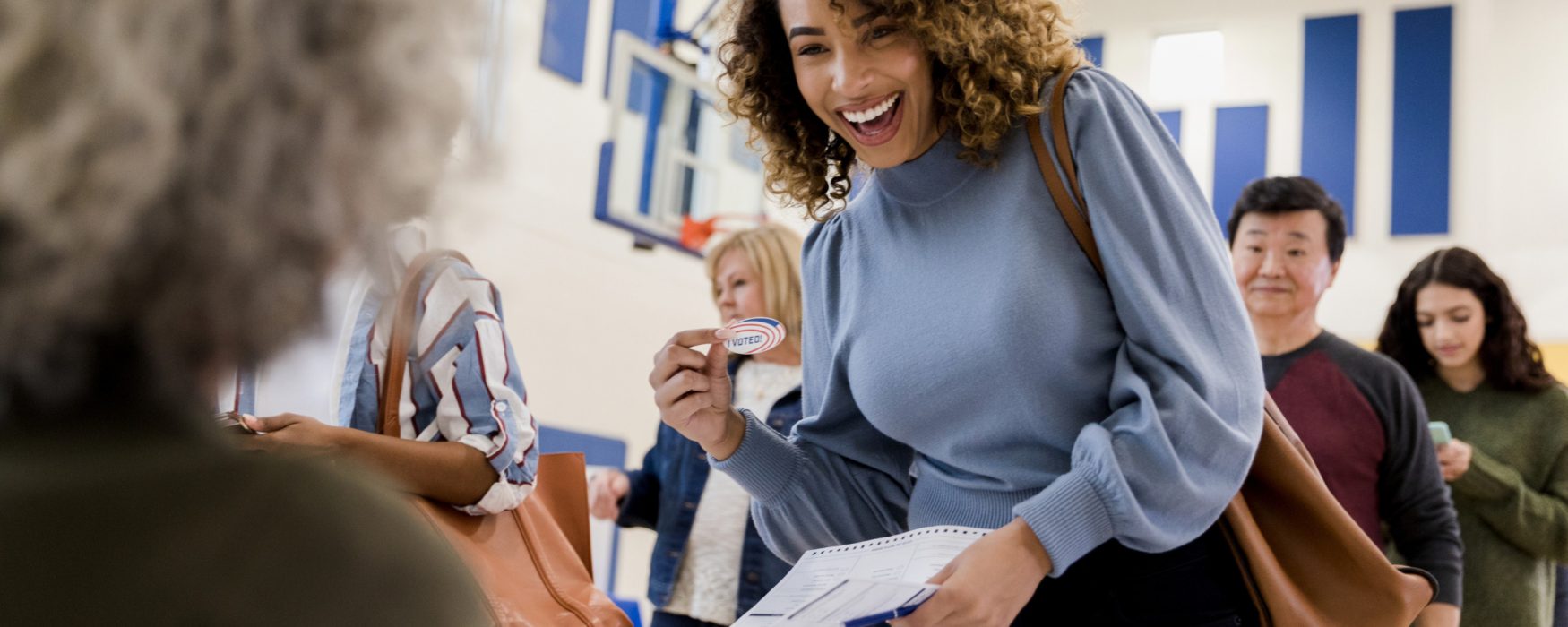
Article courtesy MIRS News, for SBAM’s Lansing Watchdog newsletter
Although Secretary of State Jocelyn Benson is anticipating Michigan to have one of its highest turnouts for a midterm election, participation in its largest city, Detroit, could be as low as 28%, according to projections. The Secretary of State is projecting 4 million voters, which is lower than 2018, but higher than any other mid-term election.
“We certainly know there are strategies in place to try to depress turnout in urban areas, not just here in Michigan, but in other parts of the country,” Benson said at a press conference Thursday morning. “Part of the strategy behind meritless lawsuits and other misinformation is a scare tactic.”
The “scare tactic” Benson described is one aimed at deterring individuals from believing their votes will count after their ballots are cast.
Two separate press conferences were hosted Thursday morning in Detroit. One consisted of Benson in the neoclassical Cadillac Place, where she concluded in her remarks that voters should be wary of the likelihood that some bad actors “may seize on this time and space, between when the polls close and the official results are announced, to spread misinformation.”
As of Thursday afternoon, Democratic political data firm TargetSmart reported more than 1.2 million absentee voters across Michigan have cast their ballots, which is about 28% of the 2018 vote.
So far, 50.6% of this year’s absentee voters are predicted to be Democratic voters, 28% projected to be Republican and less than 22% anticipated to be unaffiliated voters.
“And in the days ahead, we are on track to see another three million citizens make their voices heard in this election,” Benson said. “Election officials and law enforcement are more prepared than ever before to immediately address any attempt to interfere or disrupt the elections process, or intimidate voters, and they will work with us to ensure that all voters are safe and their rights are protected.”
Benson additionally said her office made $8 million available in grants dedicated to election security for local clerks.
For Election Day, the Secretary of State, the Attorney General and other agencies will have field teams operating across Michigan to quickly respond to election officials and voters in any type of distress.
Meanwhile, more than three miles away at Huntington Place, Detroit City Clerk Janice Winfreyhosted a separate press conference. She told the media that turnout in the city will be around 28% to 33%, and as of Thursday, Detroit has received approximately 83,000 ballots.
Detroit Election Administrator Daniel Baxteralso informed the press that 60,000 absentee ballots will have the initial steps of preprocessing conducted on them on the Sunday and Monday before Election Day.
This practice is permitted in communities with at least 10,000 residents through legislation signed off on by the Governor in early October. It authorized election workers to open return envelopes holding absentee ballots and check if the number on the ballot’s attached stub is the same as the number on the envelope.
Clerks, however, remain barred from removing absentee ballots from their secrecy sleeves or tabulating them.
“The biggest challenge is that it was enacted so close to the election without any funding to support its implementation, and from a realistic standpoint, it makes it really hard to ensure any benefits from the legislation can come to fruition,” Benson said in a separate interview with MIRS. “This gives you basically two days, to some communities with no funding and very little time to set it up.”
As for election challengers, Benson and the state’s Bureau of Elections, which she oversees, established a list of instructions in response to reports of dysfunction and disputes during the November 2020 election.
The list, which included efforts to prohibit challengers from bringing their cell phones to supervise an absentee counting board and requiring them to be credentialed by Benson’s office, was curtailed by Court of Claims Judge Brock Swartzlein late October. However, the Michigan Supreme Court ruled in a 5-2 opinion Thursday that the office can continue on and enforce the rules.
Multiple groups born out of rejection of the 2020 presidential results have made election challenger recruitment part of their advocacy. When asked about this year’s incoming election volunteers, Benson described that although transparency is key to countering misinformation, interfering and disrupting the voting process is a line not to be crossed.
“That’s where we step in to, again, ensure the law is followed,” Benson said. “The vast majority of people who will be working in elections in the polling places on Election Day all across the state are folks who are professionals who’ve done this before. There have been new poll workers recruited into the process this year from both sides of the aisle. That’s a great thing, and we expect everyone to follow the law.”
As for voter turnout in Detroit, a 28% to 33% turnout would be closer to the 31% turnout that occurred in the city during former Republican Gov. Rick Snyder’s election years in 2010 and 2014 – as opposed to the 41% presence Detroit voters had in November 2018, which was Democratic Gov. Gretchen Whitmer’s initial gubernatorial race.
“We still don’t know what the ultimate turnout will be, but we are ready to ensure that no matter how many people from Detroit participate, that their votes are counted,” Benson told MIRS. “I’m here as the state’s chief election officer to stand alongside the clerk and the mayor and say, in every circumstance, the law will be followed and every valid vote will be counted.”